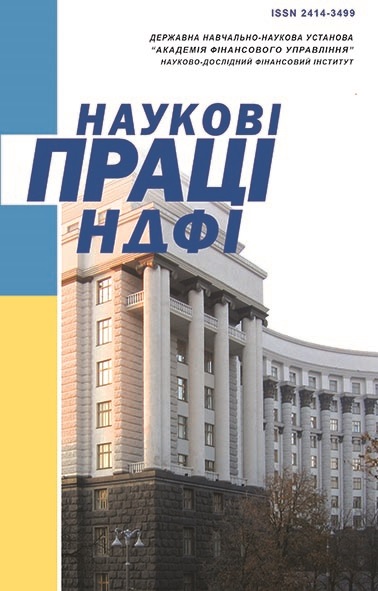
|
№ 3/2019
doi.org/10.1515/cer-2015-0006 2. Uzunow, E., Kukielska, D. (2012). Some elements of European strategy for sustainable resources concerning to rock mineral resources. Mining Science, 134, 295-300. 3. Burchard-Dziubińska, M. (2014). Implementation of green economy as an European Union's answer development difficulties. Folia oeconomica, 3 (303), 135-150. 4. Żylicz, T. (2017). Wartość ekonomiczna przyrody. Zarządzanie Publiczne, 39 (1), 114-124. doi.org/10.15678/ZP.2017.39.1.10 5. Erechemla, A. (2013). Początki wspólnotowego prawa ochrony środowiska. Studia Prawno-Ekonomiczne, 89, 49-78. 6. Drobniak, A., Janiszek, M., & Plac, K. (2016). Zielona gospodarka i zielona infrastruktura jako mechanizmy wzmacniania gospodarczo-środowiskowego wymiaru prężności miejskiej. Prace Naukowe Uniwersytetu Ekonomicznego we Wrocławiu, 443, 57-69. 7. Woźniak, M. (2016). Zasoby naturalne obszarów wiejskich jako determinanty ich rozwoju ekonomicznego. Zeszyty Naukowe Szkoły Głównej Gospodarstwa Wiejskiego w Warszawie. Problemy Rolnictwa Światowego, Vol. 16, Iss. 3, 371-381. 8. Fletcher, R., Dressler, W. H., Anderson, Z. R., & Buscher, B. (2019). Natural capital must be defended: green growth as neoliberal biopolitics. The Journal of Peasant Studies, Vol. 46, Iss. 5, 1068-1095. doi.org/10.1080/03066150.2018.1428953 9. Khvesyk, M. A., Obykhod, H. O. (2019). Natural resource of Ukraine: state and methods of conservation. Bulletin of the National Academy of Sciences of Ukraine, 7, 36-44 [in Ukrainian]. doi.org/10.15407/visn2019.07.036 10. Bystriakov I., Pylypiv V., & Lutsiv O. (2013). Capitalization of natural resources: mechanisms of investment in sustainable development. Economist, 10, 38-41 [in Ukrainian]. 11. Sakal, O. V. (2017). Instruments of financial and economic regulation of nature use in conditions of deepening of institutional transformations. Economy and Society, 13, 930-937 [in Ukrainian]. 12. Dombrovska, S. M., Kovrehin, V. V., Pomaza-Ponomarenko, A. L., & Kolienov, O. M. (2017). Public administration in the field of security of socio-ecological and economic systems. Kharkiv: NUTsZU [in Ukrainian]. 13. Terebukh, A. A., Ilnytska-Hykavchuk, H. Ya, & Makar, O. P. (2015). Financing of environmental measures in Ukraine. Herald of Khmelnytskyi national university, No. 5, Vol. 1, 108-111 [in Ukrainian]. 14. Latysheva, O. V., Kasianiuk, S. V., & Kasianiuk, O. S. (2018). Analysis of effectiveness of introduction of nature protection measures of regional development of Ukraine. Economic Herald of the Donbass, 2 (52), 72-78 [in Ukrainian]. 15. Ponomarenko, O. O., Shyfrina, N. I. (2014). Problems of the financial regulation of the economy of Ukraine in a volatile market environment and ways to solve them. The bulletin of transport and industry economics, 48, 50-54 [in Ukrainian]. 16. Kurok, O. O. (2016). State regulation of economy in the market. University economic bulletin, 31/1, 164-170 [in Ukrainian]. 17. Marchuk, Yu. M. (2018). Financial and economic mechanism of nature management: institutional foundations of investment activities. Economy and the state, 12, 35-40 [in Ukrainian]. doi.org/10.32702/2306-6806.2018.12.35 18. Shubalyi, O. M., Korolenko, M. V., & Kosinskyi, P. M. (2019). Economic stimulation of in-depth recycling of biomass in the region in the context of the implementation of the "green economics" concept. RFI Scientific Papers, 2, 110-124 [in Ukrainian]. doi.org/10.33763/npndfi2019.02.110 19. Holian, V. A., Shubalyi, O. M., & Vasylyk, N. M. (2012). Mechanisms for stimulating the development of forest resources. Lutsk: PVD "Tverdynia" [in Ukrainian]. 20. Batishcheva, S. (2011). Classification of financial incentives for socio-economic development. Bulletin of the National Academy of Public Administration, 2, 152-160 [in Ukrainian]. 21. Kovtun, O. I. (2006). State regulation of economy. Lviv: Novyi svit - 2000 [in Ukrainian]. 22. Sych, O. A. (2003). Tax stimulation of business development (Master's thesis). Lviv: Lvivskyi natsionalnyi universytet imeni I. Franka [in Ukrainian]. 23. Medvediev, Yu. B. (2003). Financial stimulation of economic development in a transformational economy (Master's thesis). Kyiv: Kyivskyi natsionalnyi universytet imeni T. Shevchenka [in Ukrainian]. 24. Faichuk, O. V. (2013). A key problem of financial support for innovative projects is the imperfection of domestic legislation. Economics. Finances. Law, 2, 21-24 [in Ukrainian]. 25. Polishchuk, V. H. (2010). Prospects for tax incentives for sustainable development of Ukrainian regions. Economy and the state, 4, 59-61 [in Ukrainian]. 26. Verkhovna Rada of Ukraine. (2010). Tax Code of Ukraine (Act No. 2755-VI, December 2). Retrieved from zakon.rada.gov.ua/laws/show/2755-17 [in Ukrainian]. 27. Karlin, M. I. (2017). Forms of financial stimulation of ecologic responsibility of business, territorial communities and citizens. Demography and Social Economy, 3 (31), 89-99 [in Ukrainian]. doi.org/10.15407/dse2017.03.089 28. Filo, M. (2013). Directions of fiscal institutions improvement as a mean of promoting economic growth in the state. Economist, 7, 22-25 [in Ukrainian]. 29. Kułyk, P., Gąsiorek-Kowalewicz, A. (2018). Development of the Green Economy on the Example of the Visegrad Group. Problems of World Agriculture, 18 (2), 193-206 [in Polish]. 30. The European Parliament, The Council of the European Union. (2004). Directive 2004/35/CE of the European Parliament and of the Council of 21 April 2004 on environmental liability with regard to the prevention and remedying of environmental damage. Retrieved from eur-lex.europa.eu/LexUriServ/LexUriServ.do?uri=OJ:L:2004:143:0056:0075:en:PDF. 31. Shpykuliak, O. H., Ivanchenko, V. O. (2018). Experience of Germany in development of energy cooperatives: perspectives for Ukraine. The Economy of Agro-Industrial Complex, 8, 92-101 [in Ukrainian]. 32. Tretiak, N., Shashula, L. (2019, January 22). Public-private partnerships in the use of natural resources. Retrieved from ecos.kiev.ua/news/view/739 [in Ukrainian]. 33. Boronos, V. M., Shkodkina, Yu. M. (2010). Environmental leasing: meaning, structure, directions of development. Bulletin of Sumy National University. Series: Economics, No. 1, Vol. 2, 115-119 [in Ukrainian]. 34. Iefymenko, T. I. (Ed.). (2017). Public finances of Ukraine: development and change management (economic security issues). Kyiv: DNNU "Akademiia finansovoho upravlinnia" [in Ukrainian]. 35. Holian, V. A., Petrukha, S. V., & Roshkevych, V. F. (2018). State regulation of institutional changes in the forest sector of Ukraine: theoretical and methodological context. Economy and the state, 11, 8-14 [in Ukrainian]. doi.org/10.32702/2306-6806.2018.11.8 36. Gasanov, S. S., Petrukha, S. V. (2014). Theoretical essence of state support for agriculture in the state regulation system of agrarian sector. Economist, 7, 16-17 [in Ukrainian]. 37. Petrukha, S. V. (2018). State anti-crisis regulation of the agricultural sector of the economy of Ukraine. Drohobych: Kolo [in Ukrainian]. |
|
|
|
|
THE ACADEMY OF FINANCIAL MANAGEMENT |

|
|
|



